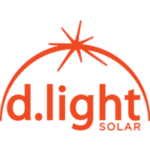About Company
Presence & Operations
-
Established operations in Uganda since 2015, with a local subsidiary (d.light Uganda Limited) based in Kampala, employing around 200–500 staff.
-
Offers distribution through PayGo financing, agents, and partnerships—leveraging the Atlas platform for payment, inventory, and field operations.
📈 Financing & Investment
-
In July 2024, secured a US $176 million multi‑currency securitization facility (via African Frontier Capital), covering Kenya, Tanzania, and Uganda to boost PayGo solar loans—including new receivables-based financing in Uganda.
-
Acumen invested US $5 million to fund receivables specifically in Uganda, aiming to reach 2.3 million people.
🌍 Social Impact & Projects
-
In May 2024, a US $3.4 million grant (from PSFU & EnDev) subsidized 10,000 solar home systems for refugees in northern and western Uganda, each system including LED lights, a radio/MP3 player, phone charging, and flashlight.
-
The same initiative aimed to install a total of 23,000 systems in refugee communities .
🚀 Growth & Scale
-
With government backing through UECCC subsidies, unit sales in Uganda increased more than fivefold soon after the November 2024 rollout, illustrating immense latent demand.
-
These sales growth helped drive d.light to positive operating cash flow in 2024 and record-breaking revenue, with Uganda playing a key role.
✅ Benefits for Communities
-
Provides clean lighting (safer and healthier than kerosene), extended study hours, mobile phone charging, and income opportunities for rural families.
-
Creates local jobs through both direct distribution staff and sales agents in refugee and rural areas.
🔭 Looking Ahead
-
Uganda remains a key growth market: millions remain off-grid, and d.light aims to expand deeper into rural communities.
-
Their 2030 ambition spans 1 billion beneficiaries globally—Uganda will be a vital contributor toward this goal
🔧 In Summary
-
Local setup since 2015, expanding rapidly through financing and partnerships.
-
Subsidized aid projects support refugees and rural households.
-
Explosive growth post-UECCC subsidy, leading to strong performance in 2024.
-
Broad-based benefits: safer lighting, phone charging, longer earning/learning hours, and local job creation.



Be a First Reviewer